Don’t visit West Africa for “Big Game” or majestic ruins – instead, focus on the amazing variety of people you’ll meet there, and take time to learn their history, their customs, and share your own.
From Nigeria to Senegal, West Africa is home to an estimated 362 million people. It’s an area of many cultures, but they don’t clash. In fact, there are many similarities in dress, food, music, and songs, and it’s thanks to the long history of cultural exchange in this region.
Even the homes are similar – if not in style, then in function. The traditional West African home is built within a compound, a cluster of buildings that serves to keep families connected. Sometimes these buildings are even connected, joined around an open area.
West Africans enjoy free-flowing and embroidered clothing, with elaborate stitching on their shirts, tunics, and jackets. The formal attire includes a knee-to-ankle Boubou robe, sometimes called a kaftan. These loose-fitted robes have their origins in the royal families of the 12th century, along with another popular item – a large square of cloth draped around the shoulder called the Kente cloth, made by the Akan people of Ghana and the Ivory Coast, that is the most well-known and a source of ethnic pride.
Kente is a colorful type of silk and cotton fabric made of interwoven cloth strips. The Kente colors and the patterns are rich in symbolism. Most Kente cloths contain yellow (gold), which signifies royalty, wealth, fertility, and beauty. Black is also a dominant color and means maturation and intense spiritual energy. Blue is another often-used color and it represents peacefulness, harmony, and love.
The cuisine of West Africa, with its plentiful fish, vegetables, fruits, and rice, should be familiar to the rest of the world. Many of these recipes are enjoyed in the Caribbean, as well as the southern region of the United States, especially in Louisiana, Virginia, and North and South Carolina. Think Jambalaya and Gumbo! Other starchy foods that are cooked in West Africa include yams, plantains, cassava, and sweet potatoes.
Football (or soccer) is hugely popular in West Africa, with national teams meeting at the Africa Cup of Nations tournaments. But it is the board game of Oware, which originated with the Akan people of Ghana, which is the most popular recreation in West Africa.
Modern musical genres in West Africa include Mbalax, Highlife, Fuji, and Afrobeat, but in many regions, traditional folk music is still preserved. Two important traditions are Praise-singing and Griot, both of which are musical and used to convey and preserve stories and legends. These minstrel traditions use string and percussion instruments, such as the talking drum, as accompaniment. Griots are historians, and their job is to memorize the oral traditions and use music to share their stories. Praise singers are often responsible for memorizing the lineages of royal people and historic events, and they pride themselves on their creativity and ability to improvise. Both of these artists depend upon the generosity of patrons, and the best are lavished with money, clothing, and other luxuries.
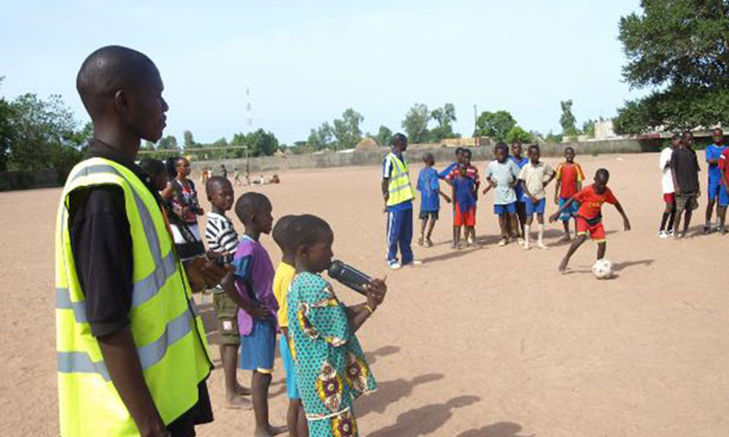
The film industry in West Africa is growing, and Nigeria has become the home of “Nollywood,” a thriving business that produces 1,500 films per year! Nollywood films are available globally on Netflix and YouTube. Some people credit the strong tradition of theater and storytelling in Nigeria with its immense growth.
Another contemporary trend in West Africa is the spread of peace, thanks to the brave women instrumental in rebuilding Africa, starting formally with the adoption of the United Nations Security Council Resolution No. 1325 in 2000. The peace movement has moved into West Africa and in 2006, the Women Peace and Security Network was established in Ghana. This organization, which advocates nonviolent resistance, is also found in Nigeria, the Ivory Coast, Liberia, and Sierra Leone.
If you would like to visit West Africa, consider a volunteer travel program that places you in a safe country on a responsible, meaningful project. There are many to choose from, and each of the ones highlighted below is vetted for responsibility and sustainability!
Featured Volunteer Programs in West Africa
Trending Guidebooks
Volunteering Abroad AFTER the Coronavirus Outbreak
Read 24,582 times2024 Best Internships Abroad: Medical Care, Marine Biology & More
Read 85,669 timesVolunteer in Australia: Animals, Conservation, Ranching and More
Read 45,809 times2024 Best Volunteer Abroad Programs, Organizations, and Projects
Read 3,618,553 times
International Volunteer HQ (IVHQ) focuses on affordable travel experiences that promote global awareness and cultural understanding. Launched in 2007, IVHQ operates in 40 countries and places thousands of volunteers each year with responsible programs that prioritize a community’s needs and the protection of its children. By partnering with organizations based in host countries, IVHQ ensures that volunteers are genuinely needed, the staff is local, and costs are reduced, making programs more affordable. Sustainable tourism is also a priority, congruent with IVHQ’s long-term goals.
IVHQ offers a wide range of volunteer projects in Ghana, based in the Accra region, along West Africa’s Atlantic coast. Volunteers can stay for one week to six months and choose to work in construction and renovation, agriculture, teaching English or sports, childcare, and medical fields.
If you’re healthy and fit and enjoy being outside, IVHQ’s construction and renovation project might be a great choice for your volunteer trip. Work in small rural communities alongside residents to help improve the infrastructure of their community centers, schools, children’s homes, and toilet facilities. Tasks vary depending on the job and may include painting, mixing mortar, bricklaying, plastering, digging, block shaping, carpentry, steel bending, and more. No experience is needed since you’ll be working with members of the IVHQ team. Program fees begin at $270 for one week. Read more here and apply.
Join IVHQ in Ghana on a sustainable agricultural project that provides food for childcare programs. This hands-on project involves crop farming and animal farming, so you’ll become familiar with the native food sources of eggplants, capsicums, and palms, and raising pigs, rabbits, goats, and chickens. Work is labor-intensive, so part of your day could be spent clearing land, fertilizing and developing land for cropping, planting and nurturing crops, and teaching farming techniques to others. When you work with animals, your chores range from purchasing and caring for the stock to building fencing and moving the animals. No experience is necessary, but if you have agricultural training, your skills and knowledge are welcome to help teach new farming methods to staff, and the older children at the home, helping them become more efficient on the farm. Learn more about this helpful project here.
If you love sports, consider an IVHQ volunteer placement that has you teaching sports to children and young adults to share the benefits of physical education, and increase their skill level in a variety of games. By using physical education as a learning platform, you’ll teach students how to work as a team, develop their self-confidence, and bring out the best of the players. Football (soccer) is the most popular activity in Ghana, but you’re encouraged to introduce new games and sports. To teach your favorite sports, you may need to bring equipment with you, since they may not be available for purchase in Ghana. Open to all volunteers, regardless of your previous teaching experience, this opportunity helps you learn more about the concept of being an educator. You also may be asked to assist in the areas of math, English, science, or social studies while on this project, since sports is generally taught in the afternoon or early evening. Program fees begin at $270 for one week, and you can stay up to six months. Read more and register.
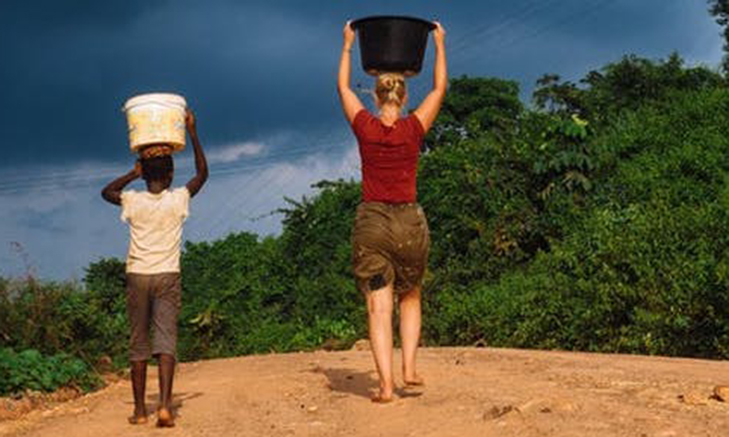
Volunteers in Ghana stay in a shared house with meals included and can keep in touch with family via wifi access at cafes and restaurants in a nearby village. Relax on weekends, or explore other neighborhoods in Ghana. Take a long weekend to Cape Coast, or nearby West African countries, or lend a hand with the children in the community, playing and entertaining them and yourself. IVHQ offers various travel and tour options while you’re in Ghana, including trips to soccer matches, waterfalls, beaches, and animal sanctuaries.
Volunteering in West Africa with GoEco is an enriching and impactful experience, blending meaningful work with cultural immersion and beautiful surroundings.
Here’s a closer look at some of the standout volunteer opportunities available:
Join an exciting English teaching program in stunning Cape Verde! This program allows you to teach English to local children, empowering them academically. Recognized as one of GoEco’s Best 10 Volunteer Abroad Programs, it offers valuable teaching experience while being a role model for young learners. The program location is just a ten-minute walk from beautiful beaches adding a touch of paradise to your stint. The typical schedule involves orientation on Monday, teaching and activities from Tuesday to Friday, and free weekends. Accommodations are shared dorm-style rooms with three meals during the week and two on weekends.
Join the Village School Renovation program in Cape Verde to help improve learning environments for local students. This meaningful work directly impacts the community’s education system. Highlights include engaging in school renovations, learning Portuguese-based Creole, enjoying a scenic beach location, and collaborating with a coordinator. The schedule starts with arrival on Sunday at Praia International Airport, followed by orientation on Monday covering local traditions and a tour. From Tuesday to Friday, work on projects like laying bricks, painting, and gardening. Accommodations are shared, single-gender dorm-style rooms with Western-style toilets, and meals include three during the week and two on weekends.
Support a local school in Accra, Ghana, by teaching English, organizing educational games, and assisting with school repairs through a holistic volunteer program. Highlights include engaging with children through fun activities, improving learning environments, and immersing in local culture via museum and market visits. The schedule starts with arrival and orientation on Sunday and Monday, followed by teaching and repairs from Tuesday to Friday, with free weekends. Accommodations are in shared, single-gender dorm-style rooms with three daily meals featuring Ghanaian and occasional Western dishes.
With over 25 years of experience in global volunteering and internships, Projects Abroad offers various programs that help you make a difference worldwide. With dedicated in-country staff everywhere they work, you can be assured of your safety.
Each volunteer project meets a real need within the local community and focuses on long-term, sustainable solutions. Alternatively, internships provide you with real-world experience and skills that will either help you get into university or assist you in your future career.
Projects Abroad knows that you can only achieve your best when you feel secure, which is why they only send volunteers and interns to countries that are safe and politically stable. It’s often said that Ghana is the best country to visit for first-time travelers in West Africa and Projects Abroad has several projects for you to choose from. You’ll receive training and inductions on arrival.
If you are looking for experience to add to your medical school application, look no further. Projects Abroad has several programs that will give you observational medical and healthcare experience.
The Medicine & Healthcare internships in Ghana allow you to learn directly from doctors in hospitals or clinics. You’ll shadow them on their rounds, observing how they diagnose and treat different illnesses or conditions. You’ll see medical cases that you’ve only read about in textbooks, which is a great way to enhance your practical medical knowledge. Projects Abroad runs regular medical outreaches in communities where healthcare services are limited. You’ll join these and help provide basic medical treatment, from cleaning and bandaging wounds to measuring blood pressure levels. If you want to focus specifically on practical outreach work, sign up for their Public Health internship. You can join a variety of other internship specializations, including Medicine, Nursing, Midwifery, Physical Therapy, Speech Therapy, Pharmacy, and Dentistry.
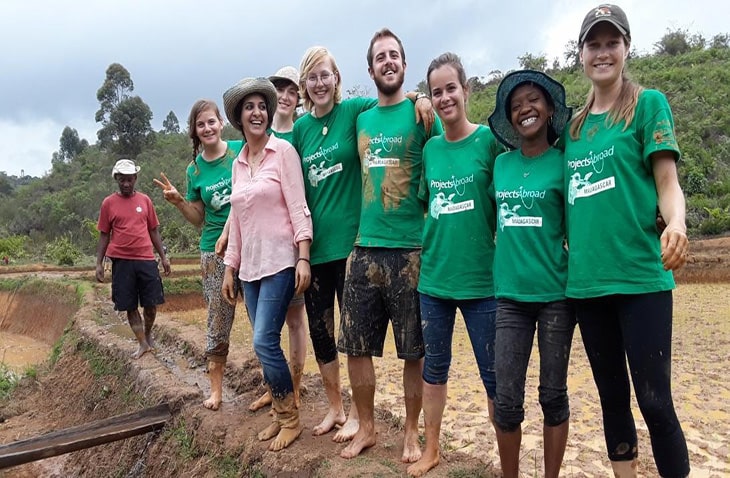
Assist with building volunteer work in Ghana and use your own hands to provide communities with important infrastructure. You’ll work alongside local builders to construct classrooms, toilet blocks, libraries, or homes. This is a great way to get actively involved in the community and learn new practical skills. Because of the building work you do, you’ll be able to physically see the effort you have put in before leaving Ghana. Read more about Projects Abroad’s Building Project.
Contribute to education in Ghana in various ways, including soccer coaching, teaching English, IT instruction, and basketball coaching. Soccer coaching involves working with high school students and donating equipment to local teams while teaching English focuses on enhancing students’ language skills. IT teaching empowers students with computer skills, and basketball coaching engages children in sports development. Each program allows volunteers to make a meaningful impact, fostering educational and athletic growth in Ghanaian communities.
Volunteering in Ghana with Involvement Volunteers International (IVI) offers a rich and impactful experience with over 35 years of expertise in the field, with seven meaningful projects based around Accra. The well-equipped guest houses provide a comfortable stay, while the low program fees make it accessible. Volunteers can immerse themselves in Ghanaian culture, living like locals in safe, supportive environments with 24/7 assistance. The orientation includes cultural lessons and a tour of Accra, enhancing the overall experience.
Here are a few selected programs:
As a volunteer in the Art & Design Teaching program in Accra, Ghana, you’ll work with local schools to run art classes, helping children express their creativity. You’ll create lesson plans, develop a syllabus, and guide students in various artistic mediums, fostering their confidence and skills. Collaborate with local artists, learn about African art, and inspire a new generation of young artists.
Join the Community Construction program in Accra, Ghana, where you’ll assist local workers with essential construction and renovation projects, such as building schools, community centers, and sanitation facilities. Engage in cultural exchange, develop teamwork skills, and contribute to meaningful community improvements. This project requires a minimum one-week commitment.
Volunteering in the Sports Coaching program in Accra, Ghana, allows you to share your passion for sports with local youth. Teach rules and strategies, organize matches, and inspire children in various sports, including football, boxing, golf, tennis, and more. Enhance your coaching skills, engage in cultural exchanges, and help young athletes develop their abilities and confidence.
Volunteering Solutions offers a diverse range of impactful volunteer programs in Ghana, designed to provide meaningful experiences for participants while addressing local community needs. Volunteers can immerse themselves in Ghanaian culture, work closely with local communities, and make a tangible difference with comprehensive support and well-organized programs.
Volunteering Solutions ensures that each volunteer’s experience is both rewarding and enriching. Explore a few of their programs below:
Volunteering Solutions offers a Girls Teaching Program in Tamale, Ghana, aimed at empowering young girls through education. Volunteers will teach subjects like English, Mathematics, Computers, and General Knowledge, as well as assist with school renovations and fundraising activities. This program is perfect for individuals seeking to make a difference during their gap year, summer placement, or career break. Volunteers will stay with a local host family, experiencing the culture firsthand. The schedule includes teaching from Tuesday to Friday, with weekends free for exploring local attractions like Mole National Park and Kintampo Falls.
The Kindergarten and Preschool Volunteer Program in Accra allows volunteers to support young children in underprivileged educational institutions. Volunteers assist local staff in teaching basic lessons, managing the kids, and focusing on their development of fine motor and social skills. Accommodation is in a volunteer house in Teshie Nungua estate, providing a communal living experience with fellow volunteers. Volunteers work from Monday to Friday, with weekends free to explore Accra’s vibrant culture and attractions. The program requires participants to be flexible, proactive, and passionate about working with children.
The Beach Conservation Program in Axim focuses on environmental protection and nature conservation along Ghana’s coast. Volunteers engage in activities such as beach cleaning, educating locals on environmental protection, planting trees to prevent erosion, and monitoring sea turtle nests. Accommodation is in a Volunteer & Staff Village near the beach, offering a communal living experience. Volunteers work 30-40 hours a week, with a flexible schedule depending on tides and seasons. This program is ideal for individuals who are passionate about the environment and willing to work outdoors to make a positive impact.
Volunteering with GVI in Ghana offers an enriching opportunity to contribute to this West African nation. Based in the coastal village of Kokrobite, volunteers work on diverse projects and work from a secure community hub, gaining hands-on experience and making a tangible impact.
With comprehensive support and flexible program durations, GVI ensures a meaningful and safe volunteer experience, fostering personal growth and cross-cultural understanding. Here are a few of their great programs:
Volunteer with GVI to support the physical and mental well-being of young women and girls in Ghana. This program aims to create safe spaces and provide essential health education, focusing on topics like puberty, menstruation, mental health, nutrition, and building confidence. Volunteers work in local schools, collaborating with women’s groups and schoolgirls to deliver workshops and health sessions. This program addresses public health issues by debunking health myths and promoting well-being through education and awareness. Volunteers engage in 35 hours of fieldwork per week, contributing to long-term community development and gaining valuable skills in community health, cross-cultural communication, and sustainable development.
Join GVI’s JEDI program in Ghana to promote fairness and equality in education. Volunteers work with local schools in Kokrobite to support educators in creating inclusive classrooms that cater to all students, regardless of their background. This program focuses on increasing school enrolment and completion rates for disadvantaged children, girls, and minorities. Volunteers deliver training sessions, facilitate interactive discussions, and support teachers in implementing innovative, non-punitive discipline techniques. Volunteers gain experience in community empowerment, social justice, and diversity and inclusion, while also enjoying the rich cultural heritage and vibrant community life in Kokrobite.

Volunteer with GVI to support local communities in Ghana in addressing climate change and promoting environmental education. This program involves collaborating with local schools and organizations to educate students about climate issues, sustainability, and conservation. Volunteers engage in activities such as beach cleanups, tree planting, and litter collections, while also delivering workshops on environmental responsibility and sustainable living. The program aims to empower communities through comprehensive environmental education, addressing urgent climate threats and promoting behavioral change. Volunteers participate in 35 hours of fieldwork per week, gaining skills in community development, environmental awareness, and youth engagement.
When in West Africa
West Africa is constantly changing, but one constant remains: it is a socially conservative place. When you visit this amazing destination, remember a few guidelines and you’ll have a wonderful trip. Be friendly and patient, and avoid confrontation. Be respectful of its religion. Wear loose clothing, but nothing revealing.
Always ask permission when you’re taking photographs, and avoid criticizing the government or the countries that you visit. Above all, be polite and enjoy yourself in this energetic and creative land.
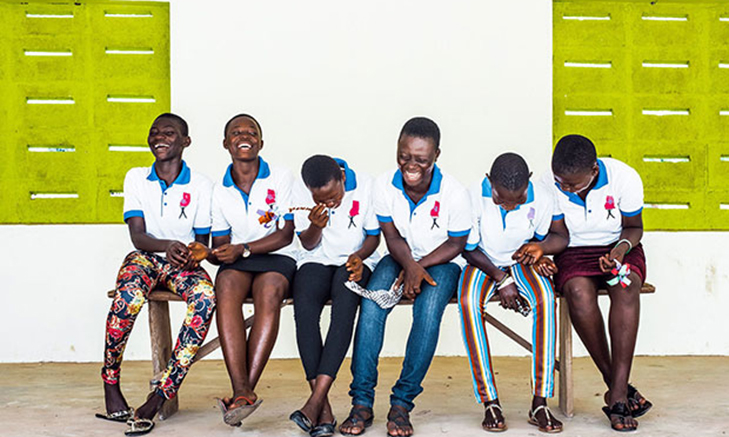














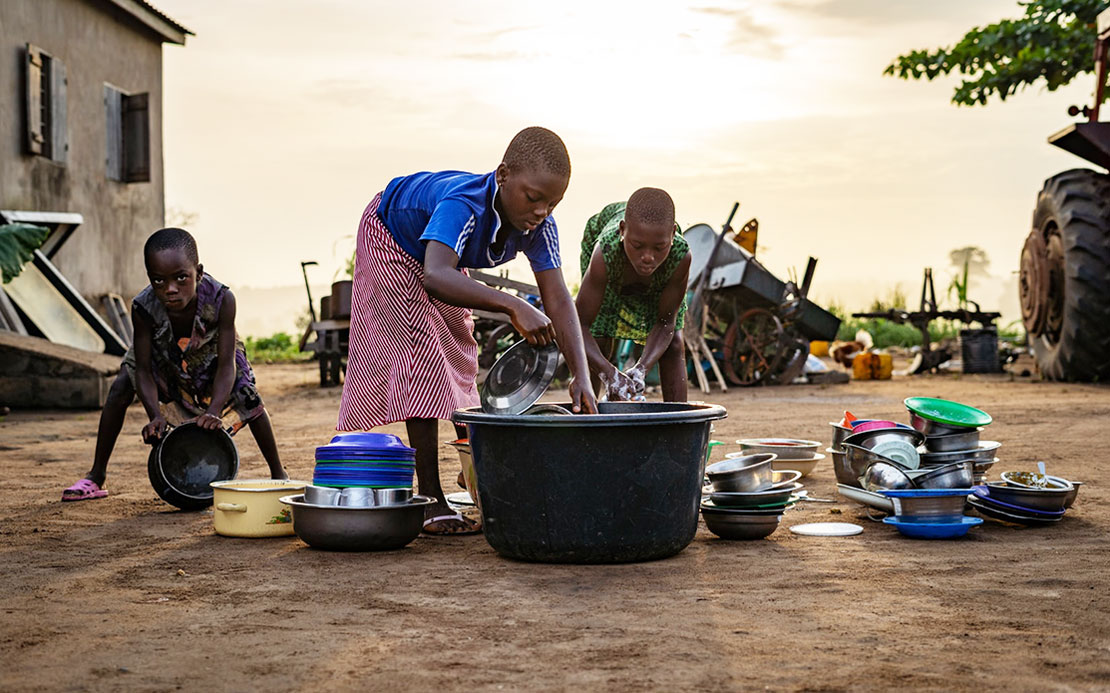
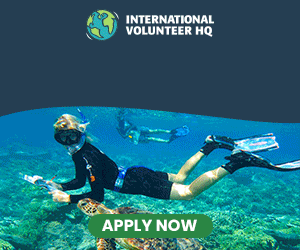
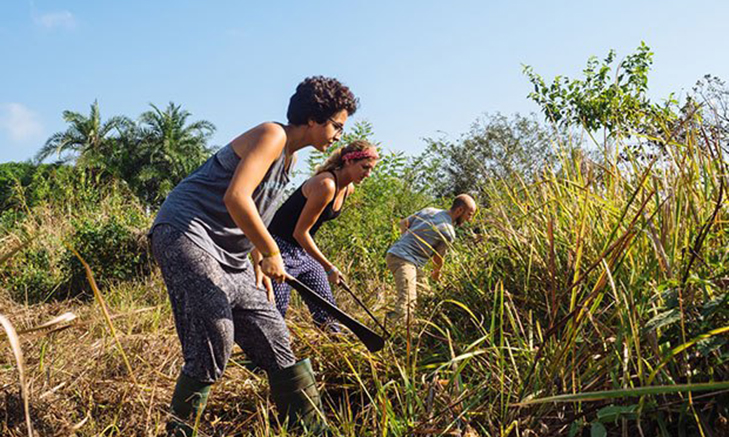


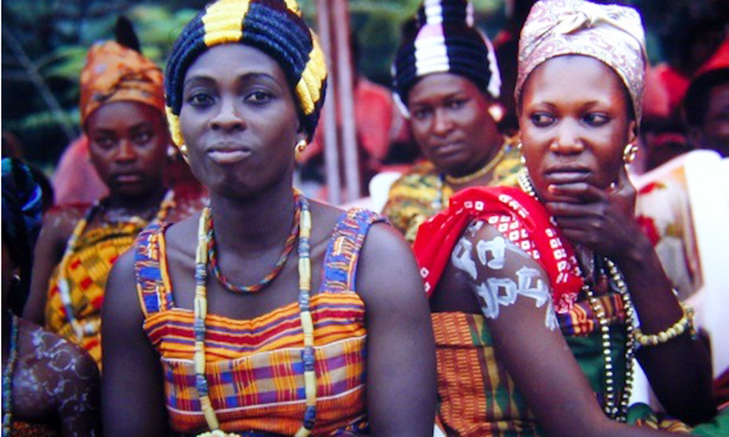

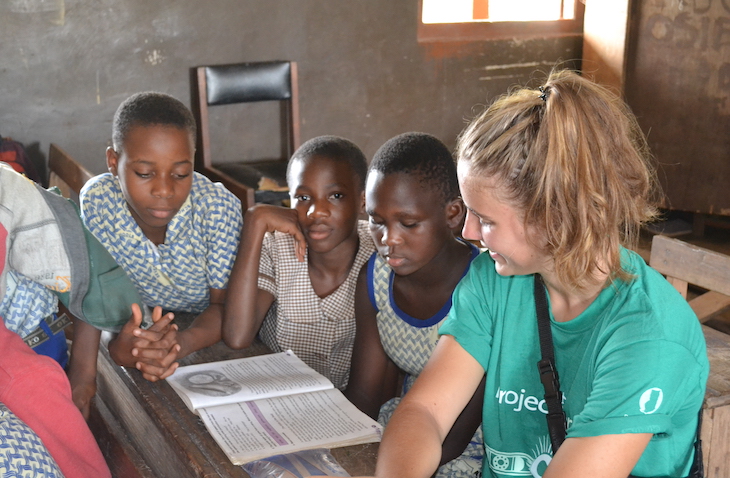


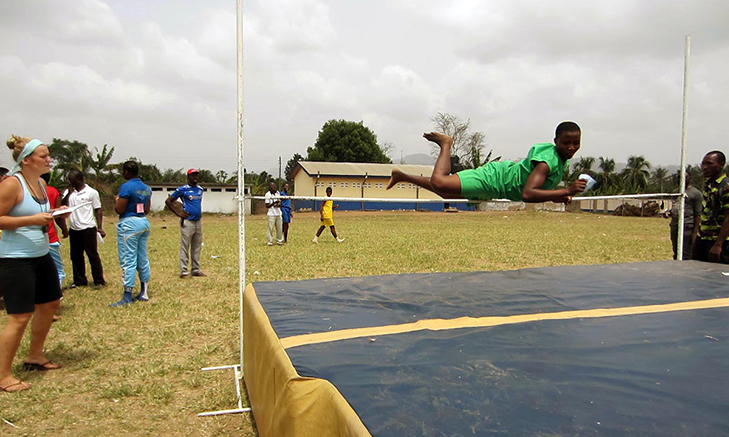
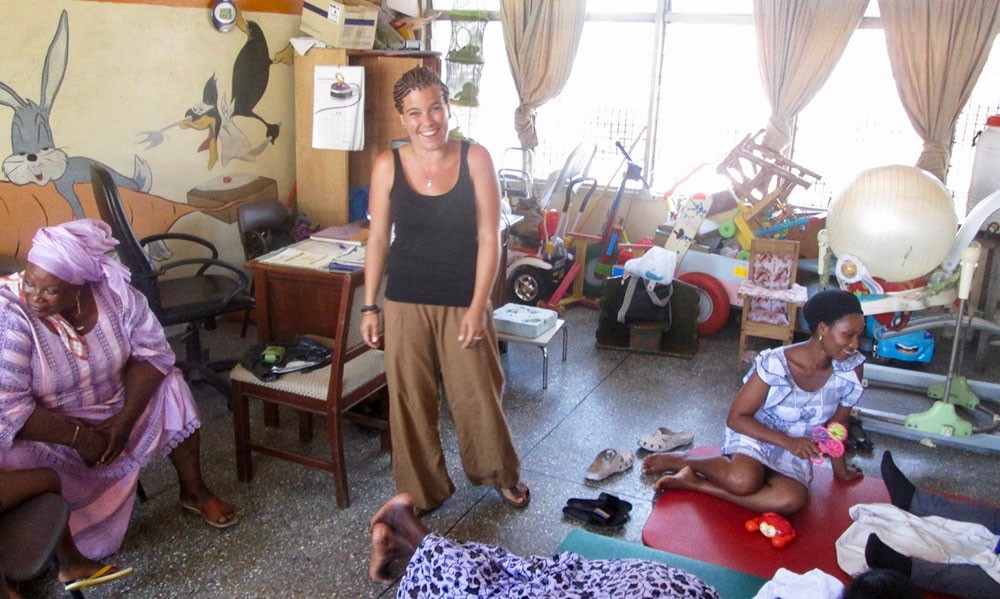
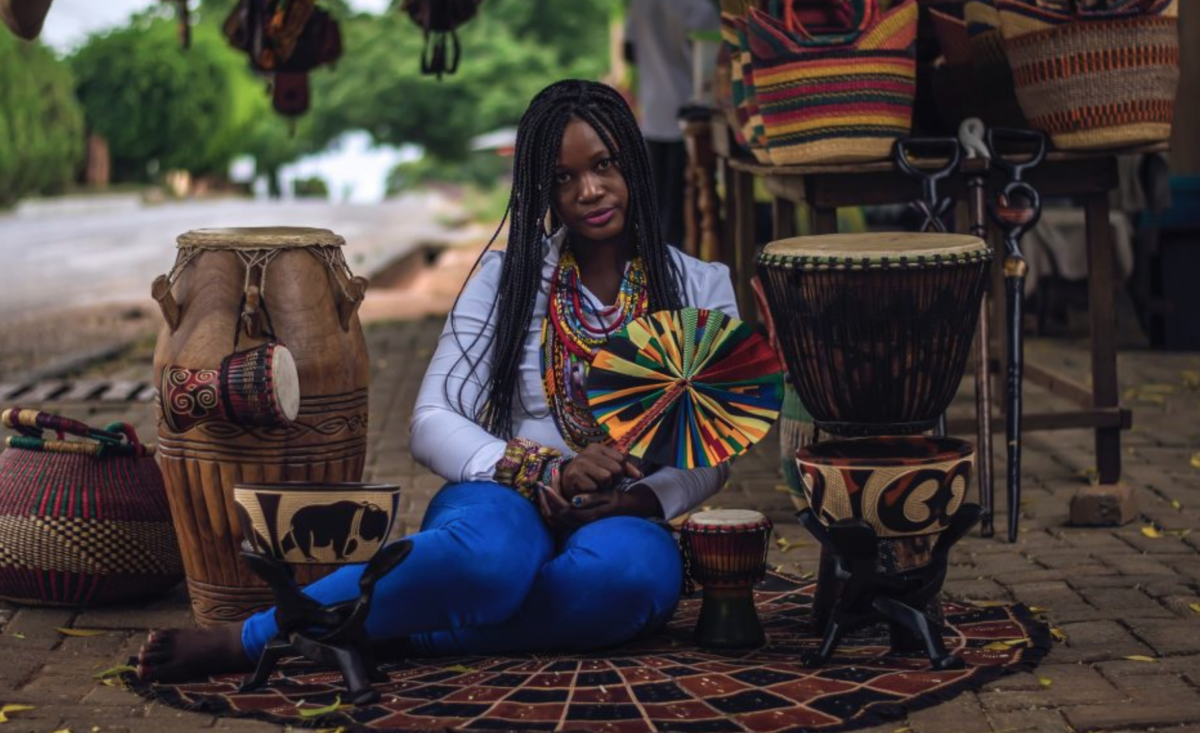

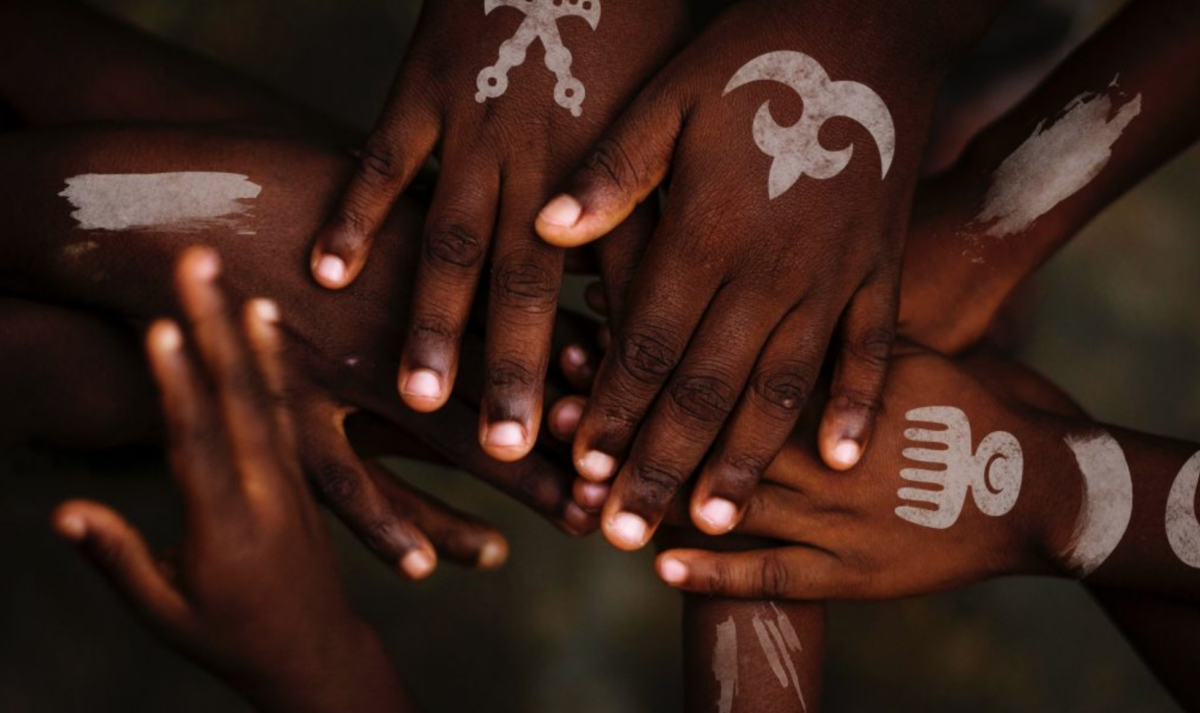
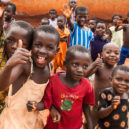
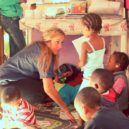
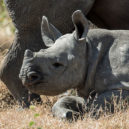







Robin Van Auken · Writer
Robin is a researcher, writer, and a registered professional archaeologist, a skillset she uses every day as a cultural communication specialist with Hands-on Heritage. Her projects connect communities with an emphasis on interpretation and education and conserve cultural and environmental legacies.